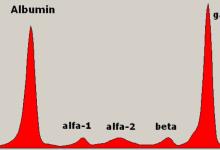Crohn's Arthritis Linked to E. Coli Infection Save

Articular manifestations of Crohn's disease affects a significant number of patients with either oligoarticular or RA-like polyarthritis or spondyloarthritis.
A novel report in Science Translational Medicine links the occurence of peripheral spondyloarthritis (SpA) to Crohn's disease, potentially enlightening mechanisms for more effective therapies.
Peripheral spondyloarthritis (SpA) is a common extraintestinal manifestation in patients with active inflammatory bowel disease (IBD) characterized by inflammatory enthesitis, dactylitis, or synovitis of nonaxial joints.
Investigators evaluated and functionally characterized the fecal microbiome of IBD patients with or without peripheral SpA.
They identified selective increases in adherent-invasive E. coli (AIEC) isolates in patients with Crohn's disease-associated SpA (CD-SpA) compared to with CD alone. When AIEC were compared to non-AIEC E. coli in germ-free mice with CD-SpA E. coli these AIEC induced T helper 17 cell (TH17) mucosal immunity and increases in IL-23 activity.
In different animal models this activity lead to more severe colitis or inflammatory arthritis.
Thus it appears that adherent invasive E. Coli is integral in mucosal and systemic TH17-dependent inflammation seen in CD-SpA .










If you are a health practitioner, you may Login/Register to comment.
Due to the nature of these comment forums, only health practitioners are allowed to comment at this time.